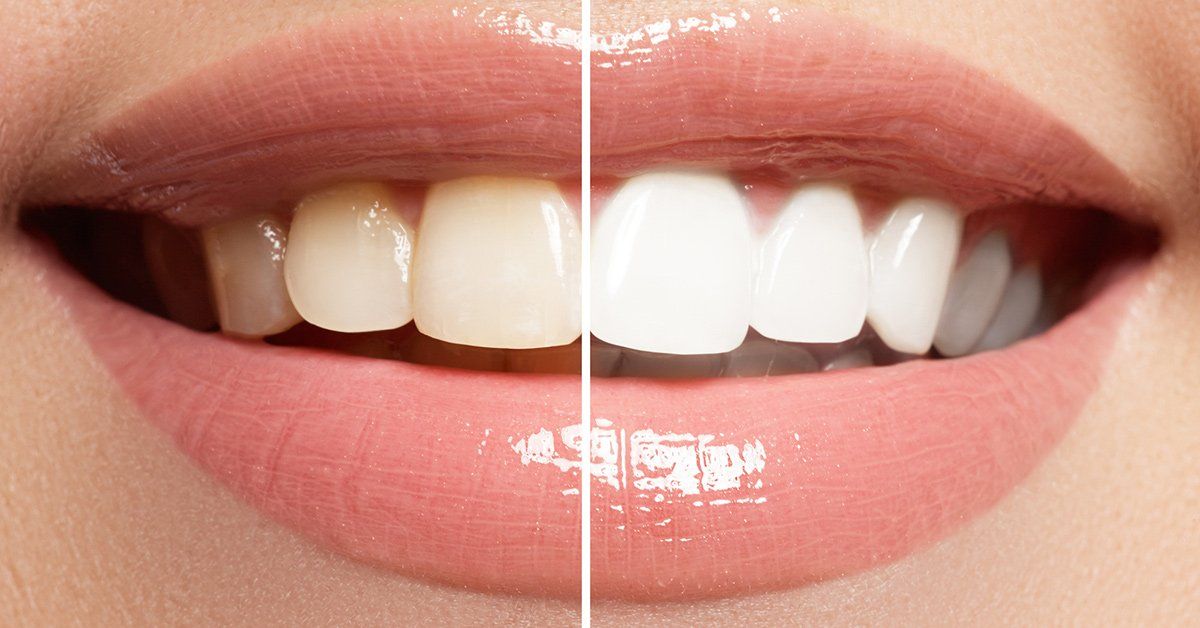Teeth Whitening Guide | What Things To Know About Teeth Whitening
Learn the science and procedure behind the teeth whitening process. Our guide explains everything you wanted to know about getting that movie star smile.
Across the globe, people spend around $3.2 million on whitening toothpaste.
Why does everyone want whiter teeth?
Whiter teeth give people confidence. They ensure photos from special events look amazing. Having a whiter smile gives a better first impression during job interviews.
The problem is, there are too many teeth whitening kits available. How do you know which ones work?
Take the guesswork out of teeth whitening and talk to your dentist. Professional whitening services are the most reliable and safest option.
Here is what you need to know before talking to your dentist.
Is Tooth Discoloration Natural?
As you age, the enamel on your teeth thins. This allows the dentin to show through. Dentin is the second and largest layer in your tooth. It is naturally a light yellow color.
Some genetic defects also cause tooth discoloration, such as amelogenesis and dentinogenesis.
Common Types of Teeth Stains
There are three types of teeth stains:
- Intrinsic Discoloration - This occurs when the dentin darkens. Problems that cause intrinsic discoloration include excess fluoride exposure as a child. Mouthwashes with chlorhexidine and cetylpyridinium chloride are also to blame.
- Extrinsic Discoloration - Describes stains on tooth enamel. Dark-colored drinks and smoking are the leading cause of extrinsic stains.
- Discoloration from Age - Thinning enamel from age yellows teeth. Chipped teeth with damaged pulp will also become discolored.
Common causes of teeth discoloration include:
- Drinking coffee and tea daily
- High fever as a child
- Poor oral hygiene
- Ingestion of fluoride toothpaste and mouthwashes
- Using tetracycline antibiotics while pregnant
What Are White Stains on Teeth?
This could be caused by decalcification. Bacteria in your mouth create an acid. This acid removes calcium and phosphorus from your teeth.
Decalcification is caused by:
- Too much bacteria in your mouth
- Excess exposure to fluoride
- Lack of calcium in your diet
- Certain antibiotics
- Braces
White stains on teeth are a signal that you need to see your dentist to treat these underlying problems.
What Is the Safest and Most Effective Way to Whiten Teeth?
It is tempting to save money by bleaching your own teeth. However, home bleaching kits aren't as safe or reliable as visiting a dentist.
Over-the-counter (OTC) bleaching kits can cause tooth sensitivity. The kits take over two weeks to produce visible results. Positive results depend on your ability to follow the whitening routine.
These store-bought bleaching kits have hard trays that cause damage to the gums. Excess bleaching solution seeps out and irritates the soft tissue in your mouth.
In-office whitening procedures produce results in an hour. During in-office procedures, clients relax while the bleaching gel works. Certain bleaching gels are designed to reduce sensitivity and strengthen enamel.
Take-home kits from your dentist produce results in a week. Dentists provide custom made, comfortable trays for take-home whitening systems.
Supposed "safe" home-made alternatives do not whiten teeth.
The American Dental Association says oil pulling not only doesn't work but it also causes stomach problems. The charcoal and table salt method removes enamel and causes concave cavities.
Maintaining Teeth After Whitening
Taking care of your teeth after a whitening treatment will keep them looking their best.
Post-whitening Tips:
- Swish water in your mouth after eating staining foods
- Use a gentle toothpaste and soft-bristled brush after meals
- Do not use any nicotine products
- Limit your intake of wine, coffee, and tea
- Drink through a straw
- Avoid dark foods like berries and sauces
- Eat foods that stimulate saliva like pears or carrots
The best teeth whitening services won't last long if you don't follow through with the aftercare.
Good Candidates for Teeth Whitening
Teeth whitening doesn't work for everybody. Don't worry, there are other options available to help you get a bright smile.
Ideal candidates for teeth whitening are:
- People with extrinsic discoloration
- Anyone without gum disease, tooth infection, or tooth decay
- Someone willing to follow post-whitening care tips
Unfortunately, intrinsic discoloration doesn't respond well to bleaching. The whitening process may even make these stains look worse.
For those who still want a whiter smile but can't use topical bleach, we offer a few other options.
Tooth Bonding
Tooth bonding is a cost-effective way to deal with intrinsic staining. While it is not a permanent solution, benefits from the procedure last for ten years.
This procedure is similar to getting a filling. You only need one visit to the dentist to see complete results.
The tooth bonding process:
- The area will be numbed with a local anesthetic
- A small amount of the tooth is removed to provide room for the dental resin
- The dentist applies the resin and shapes it to fit the tooth
- The dental resin is cured with a special light
- The new tooth surface is polished to look more natural
Porcelain Veneers
Veneers are a permanent solution for intrinsic staining problems. They are made from high-quality ceramic. The dentist picks a color that will look the most natural for you.
The veneer process:
- Consult with the dentist about the veneers
- The tooth surface is prepared by removing a thin layer
- Dental impressions are taken
- The veneers are fabricated with color-matched porcelain
- The veneers are permanently attached to the teeth
- Final adjustments to ensure a good fit and comfort
- The veneers are polished
Veneers require multiple trips to your dentist's office.
The Cost of Professional Teeth Whitening Services
How much does teeth whitening cost? It depends on the type of service you use. On average, it will cost anywhere from $400 to $1500.
In-home treatments are usually the cheapest option. In-office services, like laser tooth whitening, will cost around $1500.
There are payment options to keep your teeth whitening cost down if you're on a budget.
- Health Savings Account/Flexible Spending Account dollars
- Dental insurance
- Discount Dental Plan
Financing is also available through Care Credit, iCare, and Supermoney.
Finding the Best Teeth Whitening Service for You
Always greet the world with your best, brightest smile. However you decide to whiten your teeth, make sure you do it safely with dentist supervision.
Maryland Center for Complete Dentistry in Owings Mills, MD offers teeth whitening services. They also provide tooth bonding and porcelain veneer services for those who want to cover intrinsic discoloration.
Dr. Silverman and his staff are ready to help you put your best smile forward.
Contact us today to schedule an appointment to discuss your teeth whitening options.



